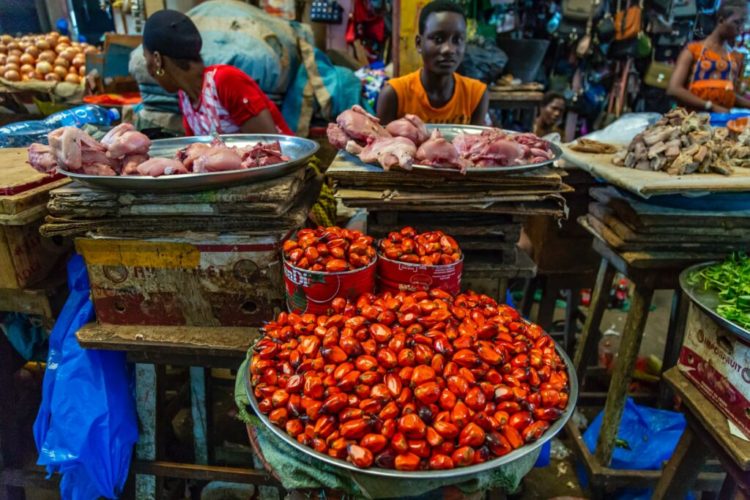The agency announced on Thursday, April 15, 2021 that food inflation rose to 22.95% (year-on-year) in March, the highest on the inflation records logged from 2009.
The rise in the food index was caused by increases in prices of bread and cereals, potatoes, yam and other tubers, meat, vegetable, fish, oils and fats and fruits.
The headline inflation also rose to 18.17% (year-on-year) in March, the highest since January 2017.
"The urban inflation rate increased by 18.76 percent (year-on-year) in March 2021 from 17.92% recorded in February 2021, while the rural inflation rate increased by 17.60 percent in March 2021 from 16.77% in February 2021," Thursday's report noted.
The core inflation, which excludes the prices of volatile agricultural produce, also rose to 12.67% last month, according to the NBS report.
Nigeria's headline inflation has been consistently rising each month for the past 19 months, a trend worrying many.
The Minister of Finance, Budget, and National Planning, Zainab Ahmed, said in February that the President Muhammadu Buhari administration has a major target to bring down inflation to single digits.
"The largest contributor to inflation in Nigeria is food inflation. When you decouple it, you find that transport costs are the largest contributor.
"Hence the decision to reduce import duties on tractors and other vehicles in the Finance Act 2020," she said.
Headline inflation in Nigeria has not been single digits for five years since 9.62% was recorded in January 2016.
The CPI measures the average change over time in prices of goods and services consumed by people for day-to-day living.
10,534 respondents spread across the country usually provide price data for regularly priced market items of 740 goods and services.















